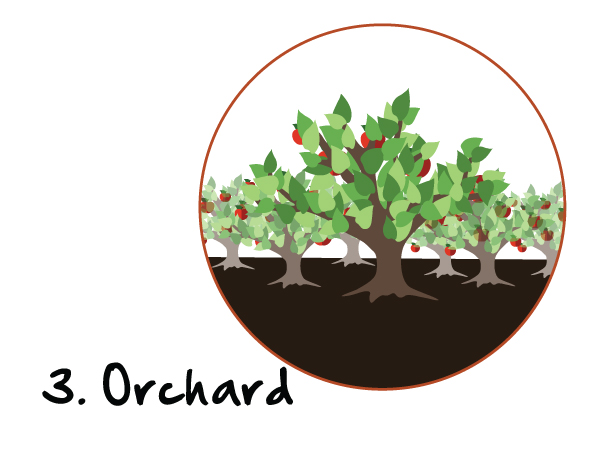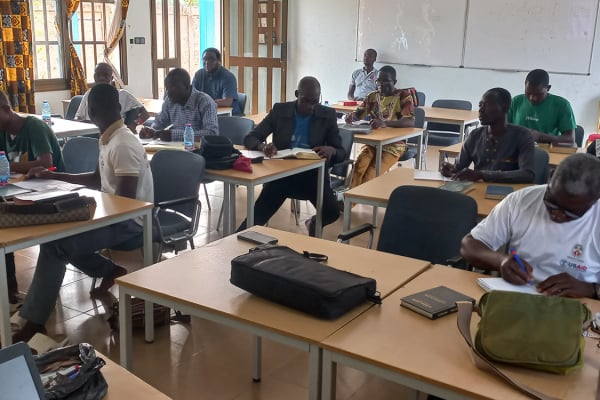
The Discipling Tree Series: Do Disciple-Makers Need the Church?
With all this talk about disciple-making, you may be wondering if we need the church. Is the church even our concern, considering that Jesus told us to “make disciples” while He committed to “build My church”? With the growing disenchantment of many in the West with the church, chronicled in books like George Barna’s Revolution and Churchless, you might wonder whether one-on-one, coffee shop disciple-making could be a viable substitute for church.
For many years we’ve scared people away from the task Jesus entrusted to us (make disciples), by using our “church-planting” lingo. Mission organizations recruited “church-planters,” even though the term was not actually found in Scripture. Some freshly minted seminary students, like myself, were courageous enough (or perhaps naïve enough) to believe that somehow we’d be able to pull off this “church-planting” thing in a foreign culture. The vast majority of believers, however, saw it as such a daunting task that they figured they must not be one of the “called ones.”
Amazingly, many of those who went overseas as church-planters actually succeeded — at least in the sense that they managed to see people transformed by the gospel and join together under one roof as an expression of the local church. (Not all of those churches lasted after the church-planter left, but that’s another discussion.)
In recent years, the evangelical world has begun to return to the more biblically based language of “making disciples.” The average American believer is beginning to understand that this is something we are all called to be part of. Whereas “planting a church” was too daunting, investing in one or two disciples seems realistic.
But what about the church? Is that someone else’s job? Am I simply called to make individual disciple-makers and leave it at that? I don’t think so. In fact, the church is at the very heart of Jesus’ disciple-making mandate.
Matthew 28:19 says, “Therefore go and make disciples of all nations, baptizing them in the name of the Father and of the Son and of the Holy Spirit.” There. Did you see it? The church? Somewhat hidden in this rather formulaic-sounding call to baptism is Jesus’ love for the church and His command for us to link our disciple-making to it. God has existed from all eternity as a relational, triune God — and He loves relationship so much that He calls us to baptize new Jesus-followers into the community of God, whose earthly expression is the church.
The end-game of disciple-making is not a bunch of free-floating disciple-makers. It is communities of disciple-makers. Just as human cell multiplication must result in either the development of a new body or the growth of an existing one, so must biblical disciple-making (A Better Way). To build on the analogy of the tree and soil that we began with in previous blogs, the goal of disciple-making is not simply two trees; it is an orchard.
Lenny is a disciple-maker friend from Chicago. God has used him to make disciples who reproduced other disciples, but Lenny hasn’t stopped there. He wisely recognizes that disciples need more than just him to be healthy followers of Jesus. They need community. He observed, “Meeting one-on-one at Starbucks, a disciple can put on a good front. But interacting with other disciples in community is where I really see whether they’re learning to love one another.” The real test of a disciple’s growth is not in seeing how much the disciple loves Jesus, but in seeing how the disciple learns to love others.
When Jesus said, “By this everyone will know that you are My disciples, if you love one another” (John 13:35), He was most certainly talking about living in loving community.
View the full blog series, watch the video and download The Discipling Tree infographic.
 Dale Losch joined Crossworld as a disciple-maker in France in 1988, and has served as Crossworld’s president since 2009. He loves to motivate people to use their God-given passions to make disciples wherever life happens. Hear more from Dale.
Dale Losch joined Crossworld as a disciple-maker in France in 1988, and has served as Crossworld’s president since 2009. He loves to motivate people to use their God-given passions to make disciples wherever life happens. Hear more from Dale.
Italicized names were changed to protect identity.
.png)

 By Dale Losch
By Dale Losch











